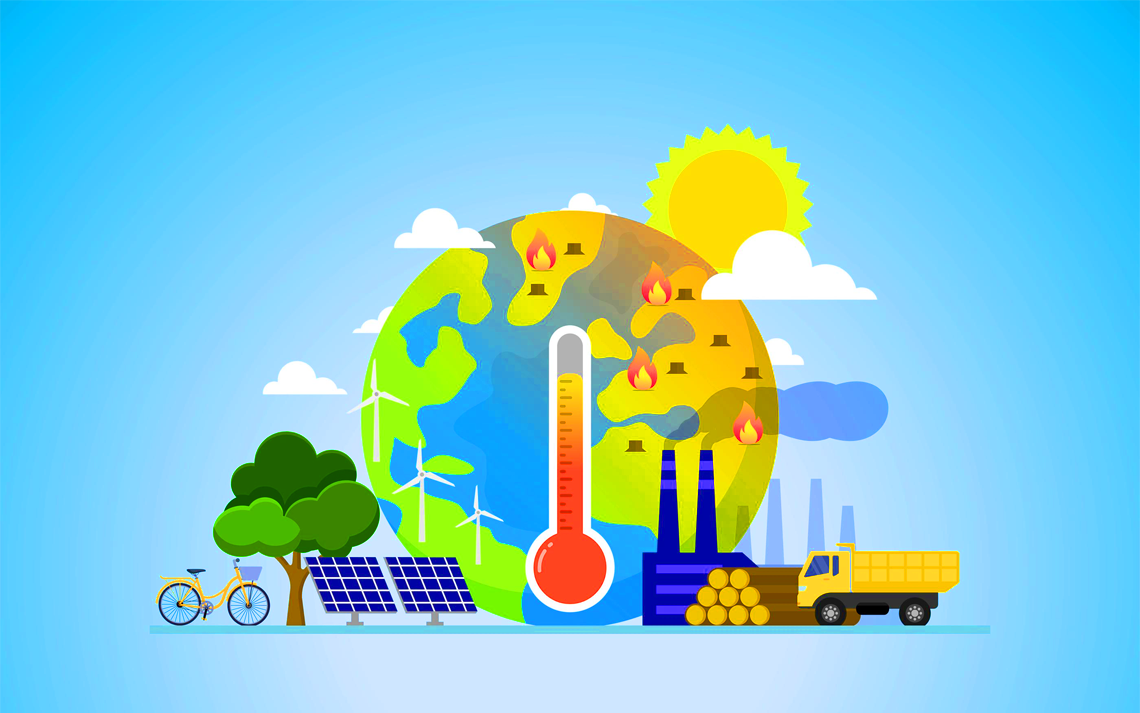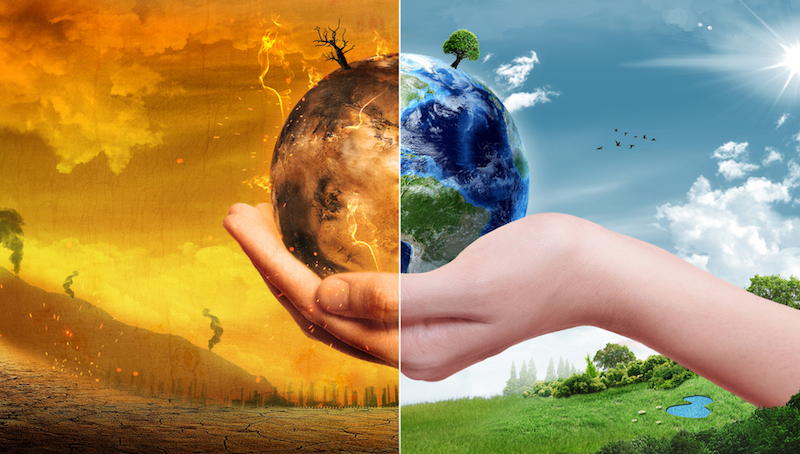Climate Science: How Our Planet Keeps Its Cool… and Why It’s Getting Hotter

Climate science is the study of Earth’s long-term weather patterns and how natural forces and human activities shape our planet’s temperature, rainfall, wind, and more.
The Dive
Earth’s climate isn’t just about today’s weather, it’s about the big picture. Climate is the pattern of weather we expect in a place over many years: how hot the summers are, how cold the winters get, how much rain usually falls. Weather is what you see out your window; climate is what you'd expect to pack for if you moved there.
Our planet’s climate depends on one powerful energy source: the Sun. Sunlight travels through space and reaches Earth’s surface, warming land, air, and water. As that heat rises from Earth’s surface, some of it escapes back into space — but not all of it. Thanks to the gases in our atmosphere, a portion of that heat is trapped, keeping the planet at a livable temperature. This natural heating system is called the greenhouse effect, and without it, Earth would be a frozen wasteland.
Greenhouse gases like carbon dioxide (CO₂), methane (CH₄), and water vapor act like a blanket. They let sunlight in, but hold onto some of the heat before it escapes. This keeps the average global temperature around 57°F (14°C), which is just right for life as we know it. But here's the twist: if you add more of those gases, the blanket gets thicker, and the planet gets hotter.
That’s where humans come in. For the last 200 years, we’ve been burning fossil fuels like coal, oil, and natural gas to power factories, cars, and homes. This releases huge amounts of CO₂ and other greenhouse gases into the atmosphere. Scientists have known about this for a long time. In the 1800s, researchers like Joseph Fourier, John Tyndall, and Svante Arrhenius figured out that certain gases trap heat, and that adding more CO₂ would warm the planet.
Today, we’re seeing the results of that warming. Global temperatures are rising faster than ever recorded. Ice is melting. Sea levels are rising. Weather patterns are becoming more extreme, with stronger storms, longer droughts, and dangerous heatwaves. Climate science helps us track, predict, and understand these changes, and it also helps us figure out what we can do to slow them down.
The more greenhouse gases we pump into the atmosphere, the more we change the balance of Earth’s climate system. But the good news? We’re not powerless. By studying climate science, switching to cleaner energy, protecting forests, and making smart choices in our daily lives, we can help restore that balance. Every action counts, and the future depends on what we do today.
Why It Matters
Climate science shows us how Earth's systems work and how our actions affect them. Understanding the greenhouse effect and human impact helps us prepare for the future and protect the planet. Whether it’s choosing clean energy or helping your community prepare for floods or fires, the choices we make today can shape tomorrow’s climate. It's not just about science, it's about survival. The more we know, the more power we have to act.
?
What is the difference between weather and climate?
How does the greenhouse effect work?
Why do greenhouse gases keep Earth warm?
What human activities add greenhouse gases to the atmosphere?
What might happen if Earth keeps getting warmer?
How can we reduce the amount of greenhouse gases we produce?
Why is climate science important to your future?
What are some ways communities can prepare for extreme weather?
Dig Deeper
A simple, engaging explainer on how Earth's climate works, what the greenhouse effect is, and why it's important to act now.
This thought-provoking video explores public skepticism, misinformation, and the importance of climate literacy.
Related

Powering the Future: Energy and Renewable Solutions
From sunbeams to spinning turbines, renewable energy is shaping our planet’s future. Learn how energy works, where it comes from, and how engineers are helping build a cleaner, brighter tomorrow.
Reading the Sky: How We Measure Weather and Why It Matters
Weather isn’t just a conversation starter, it’s data, science, and survival. Tracking the atmosphere gives us clues to the future, insight into climate, and the power to make informed decisions.

Climate Change and Its Impact on the Future
Climate change is reshaping our planet. From rising temperatures to more extreme weather events, what can we do to mitigate its effects and create a sustainable future?
Further Reading
Stay curious!
